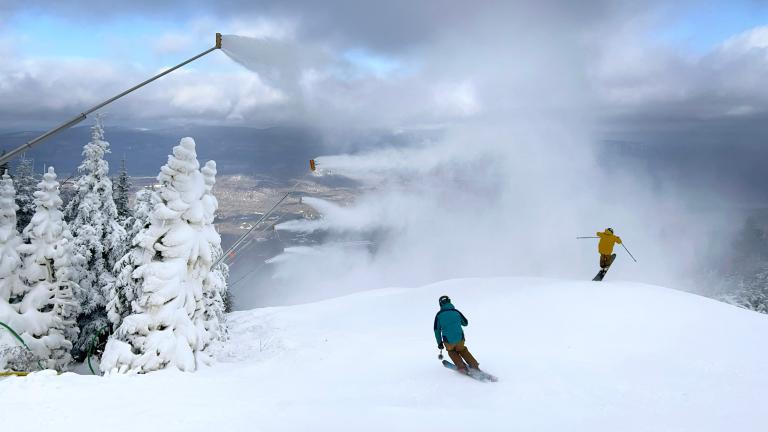I’ve been pondering the question of nuclear power, about which there is, as Gristmill readers well know, impassioned debate. Here are some random, rambling thoughts:
Too much of the discussion is conducted on a rather simplistic "yes nuke" or "no nuke" axis. This is unsatisfying. Seems to me the better questions are: How much nuke, and where, and belonging to whom? What’s the licensing and approval process going to look like? Who’s going to insure against loss or accident? Where’s the waste gonna go? What technology will be used in the facilities? Etc. As commenter scooter says, "one should be wary of good versus bad generalizations on any energy source. The Devil is always in the details."
On that note, I found this letter to the editor from reader Vince Daliessio quite convincing:
There would be everything to like about nuclear power, and little to hate, if all the regulatory accretion around the nuclear industry were removed, and replaced with a simple rule: Thou shalt be 100% financially responsible for anything that goes wrong with the plant. The current system, in exchange for an unmanageable welter of regulations, socializes most of the liability of nuke plants. This is bad, because the owners will never have their incentive, profit, fully aligned with those of their neighbors, clean air and property, and cheap energy.
Current advanced reactor technology can produce reactors that are not only virtually fail-safe and inexpensive right now, but in the future could be built to nearly any size load. So-called "pebble-bed" reactors virtually eliminate the meltdown potential, while "non-contact" water designs reduce the amount of radiation that would be released in a worst-case accident. And there are a number of exciting technologies for disposing of spent fuel, which in the absence of socialized disposal would rise to meet the challenge in a much more environmentally sound manner than the federal holedoggle at Yucca Mountain.
But as long as the industry substitutes taxpayer subsidies and stifling regulation for strict indemnity and property rights, then no, we shouldn’t let them build even one new plant.
Right. There are awful things about nuclear, but if we made nuke companies financially responsible for those awful things, they either a) will go out of business, or b) change the awful things. Such is the magic of markets, despite their low cachet in lefty circles.
Perhaps instead of (or in addition to) standing on the sidelines and waving "no nuke" signs — rather futilely, I suspect — we should be inside the process, pushing for a real open energy market, speaking the language of free enterprise that those in power so love. That might be a more strategic approach.
Speaking of strategery, I was mildly intrigued by the idea floated recently by John Laumer on Treehugger: To the extent that the Bush administration and the nuclear industry hype nuclear as an answer to the dangers of global warming, take them up on it. Call their bluff. Hype nuclear along with them. Drag the debate into the open and say, "yes, climate change is a huge threat, so let’s talk about solutions." If I read him right — the post is a bit obscure — he thinks that, if we really, as a society, set ourselves toward seeking solutions to climate change, nuclear will lose out naturally. The important thing is to instill the public with a sense of the gravity of the problem.
It’s a gamble, but who knows. Perhaps it could work. But it’s Friday, so my judgment cannot be entirely trusted.


